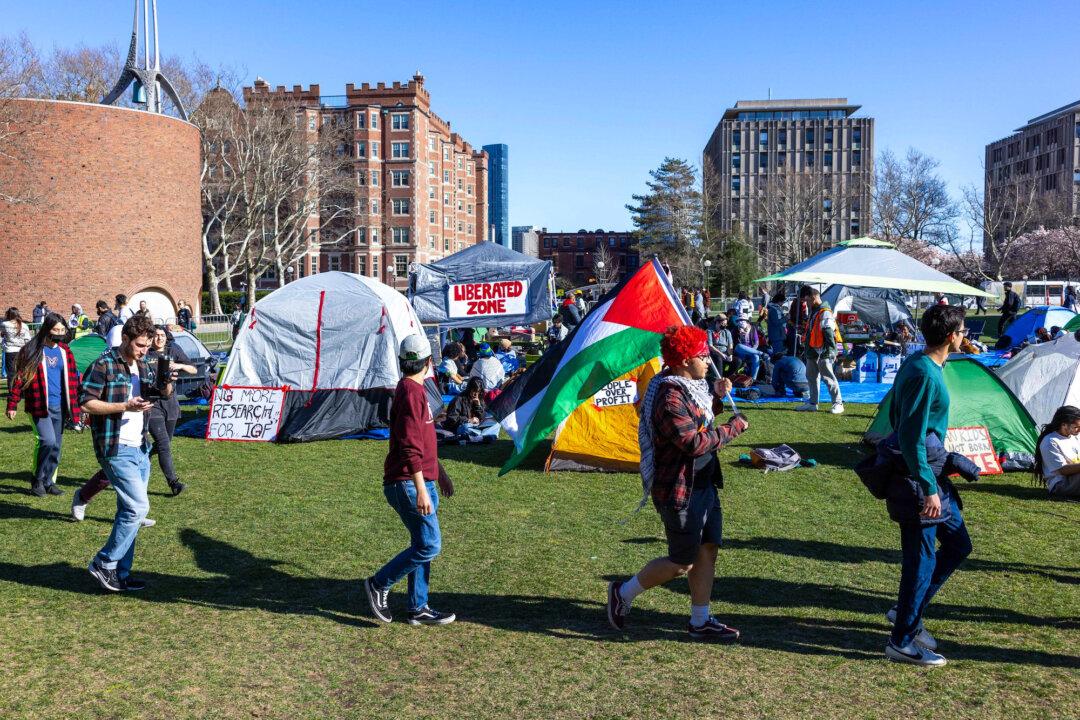Police using tear gas and rubber bullets while being pelted with bottles and rocks arrested an unspecified number of pro-Palestinian activists early on May 10 at the University of Arizona in Tucson less than 24 hours before the school stages its commencement exercise, kicking off another day of confrontations on campuses across the United States.
In a late-night statement on May 9, the University of Arizona Police Department warned protesters that “a structure made from wooden pallets and other debris was erected on campus property after 5 p.m. “in violation of the university’s policy prohibiting temporary structures.





